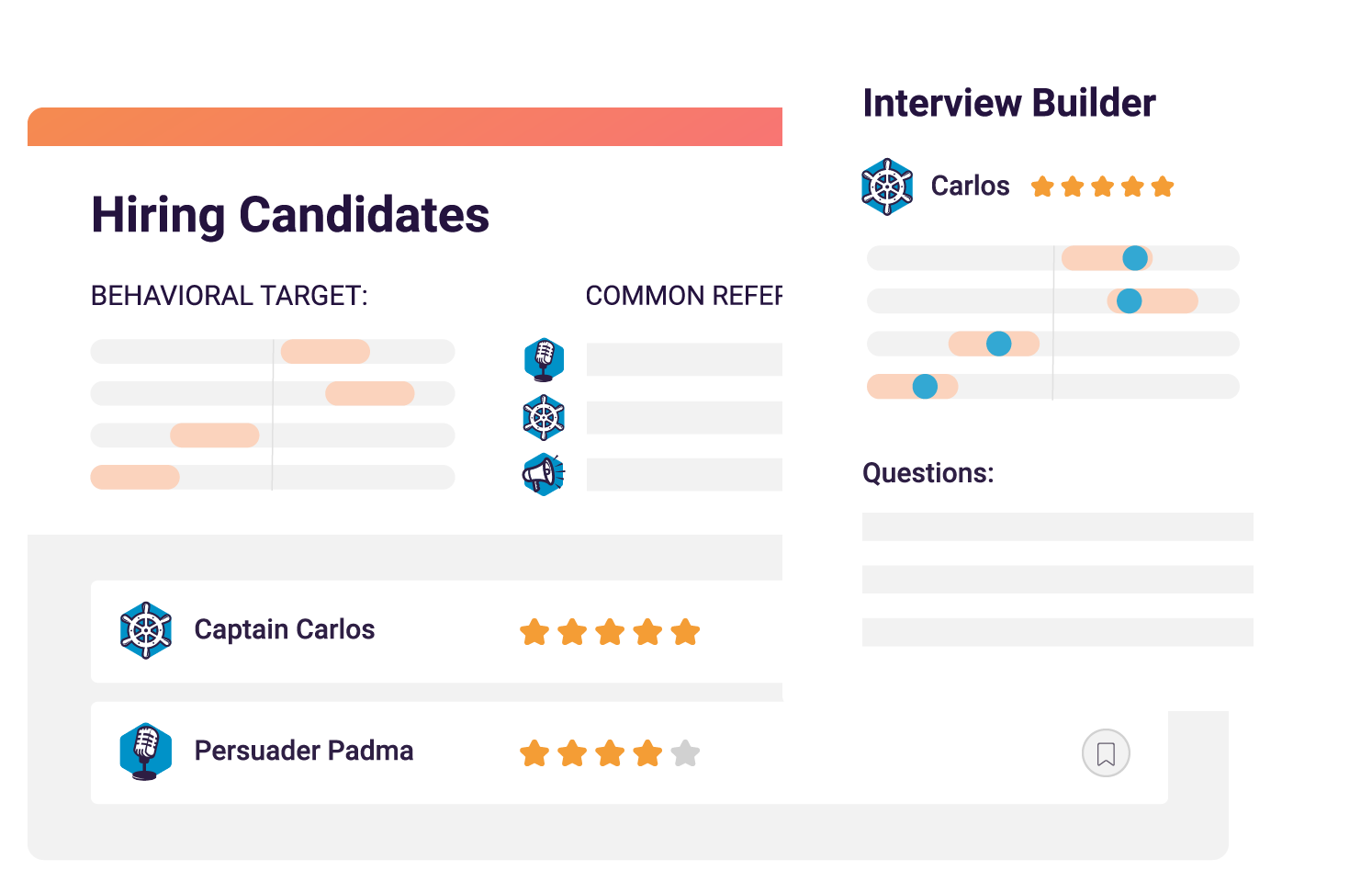Hiring mistakes not only waste time and money – they can also impact company morale. Having a refined recruiting and hiring process is crucial to the success of any organization. It’s important to know what pitfalls to avoid when selecting candidates, in the interest of ultimately bringing the best employees for your company on board.
The following are the five mistakes hiring teams often make, at the cost of securing top talent:
1. Failing to prescreen candidates
This goes beyond doing background checks or calling references. It means checking to make sure candidates actually have all the degrees listed on their resume, and that their work history is accurate. If there are more than a dozen candidates seriously worth considering, it’s important to conduct phone interviews first. Spending 20 or 30 minutes on a phone interview could eliminate several candidates before the face-to-face interviews even begin. Having three or four candidates to actually interview is not enough, while 15 to 20 is too many. That’s why a good prescreening process is invaluable, helping you narrow the field appropriately.
Take care with your pre-screening outreach, too. Your intro emails to candidates are often the first impression your company makes. The tone and content of those emails will set the stage for what the candidate can expect going forward in the interview process.
Are you one of those companies that sends out those automated HR emails? Can the candidate differentiate between an automated email and one sent by an actual human? Do they know who to follow-up with, and who to contact with questions?
You want to humanize your hiring process – make it an experience they’ll be excited to talk about. How do you do that? You, as the HR person, recruiter, or hiring manger, need to bring genuine excitement to the very first interaction with these candidates. This person thought enough of your company and its mission to consider shifting their career toward your organization and this open position. Redeem their faith in you.
2. Inadequately preparing for the interview
It’s just as important for HR and hiring teams to prepare for an interview as it is for the candidate. Those conducting the interview need to meet ahead of time, to discuss what type of candidate they’re actually looking for, and what kind of questions they’ll ask. Various members of the interview team should be responsible for asking different types of questions, and for assessing different attributes of the candidate.
Candidates want to know you’re taking the hiring and recruiting process seriously – that the position in question is a crucial part of the organization’s success, and finding the right person to drive that success is paramount. Remember, your candidate may have had to make up an excuse to get away from their current job for an hour, just so they can sit in their car and take your call. Or maybe they had to come in late to work, or bailed on a meeting so they could chat with you. You can reciprocate by valuing their time equally.
What’s running through their head when you show up late to the conversation, or worse, forget to show up at all?
Is this what I can expect from their culture, people scrambling to make it to meetings on time?
Are people not communicating with each other?
Have they already found a candidate they are more serious about hiring?
Am I wasting my time?

3. Rejecting overqualified candidates
Rejecting a candidate for fear they’ll get bored or leave the company for a better position is usually not a smart move. An employee with an advanced skill set will generally be a positive addition to the organization, and likely saving you time and resources related to training. It’s important to keep in mind that the potential exists for this employee to be promoted, or develop into a leadership role, more quickly. This is especially true when hiring for a large company.
Does the candidate possess the behaviors you seek in the role? Are they a good culture fit, or a culture add? If so, don’t overthink the skills match (or lack thereof) for the specific role.
A lack of creativity, or an inability to curate questions that fit the ethics and culture of the company, can also hurt your efforts to secure top talent. Get creative with your interview process; ask questions suited to your organization’s culture, and what you stand for.
Think about your interviews as a whole. Make your interview process stand out. At PI, we want the candidate to get the full 360-degree view of the people and culture at PI, a true interpretation of what to expect. It’s also a great way to get the individual to feel comfortable, open up, and give us the best idea as to who they are as a person and a future team member.
4. Failing to share salary information
Candidates leave their previous organizations for various reasons—no room for growth, lack of development, bad manager fit. It’s not an easy decision for someone to walk away from a position of relative stability. At the end of the day, we all work for a paycheck – and organizations that aren’t transparent may find themselves missing out on top talent.
Stop wasting your candidates’ time. They know what they’re worth. They’ve combed every salary information website, audited their skills and experience, and have come up with the exact amount that will ultimately get them to sign on the dotted line. Don’t put up a vague salary range in the initial job ad, then wait until the final stages of the interview to discuss specifics. The candidate will feel duped. What’s more, it might not be long before salary transparency is a must-have, rather than a nice-to-have.
5. Putting too much emphasis on one interview
The interview is obviously an important aspect of choosing an employee, but it shouldn’t be the only factor taken into consideration. A candidate will often tell those conducting the interview what they think they want to hear. Putting too much emphasis on an interview can also be applied to years of experience and an impressive amount of education. Degrees, years of experience, and interview performance all need to be balanced alongside traits such as enthusiasm and potential for growth.
Consider a person’s behavioral strengths, and how those might complement those of the team they’d be joining. Remember that skills can often be thought, but you’ll have a harder time changing the way a person is naturally wired, and inclined to react in workplace scenarios.
Your interviews should be an experience, something that candidates are excited to talk about. You’re potentially sitting across the table from your future employee and those initial conversations are going to set the stage for what they can expect from you and your organization during their career there.
But one conversation can’t become the deciding factor. Evaluate the entire candidate – head, heart, and briefcase – and your hiring strategy will be better for it.









